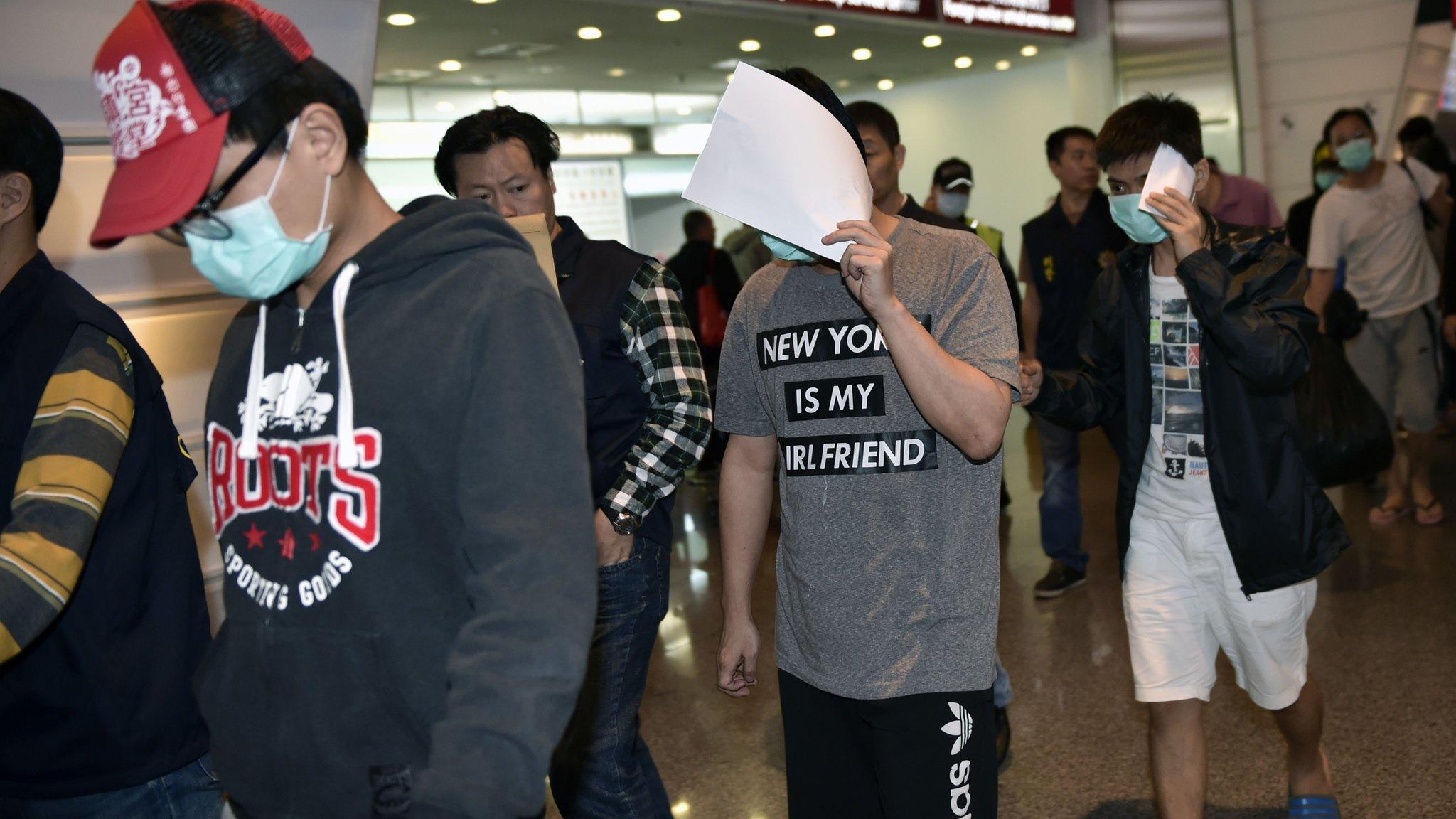Why is Spain in the middle of a spat between China and Taiwan?
- Published
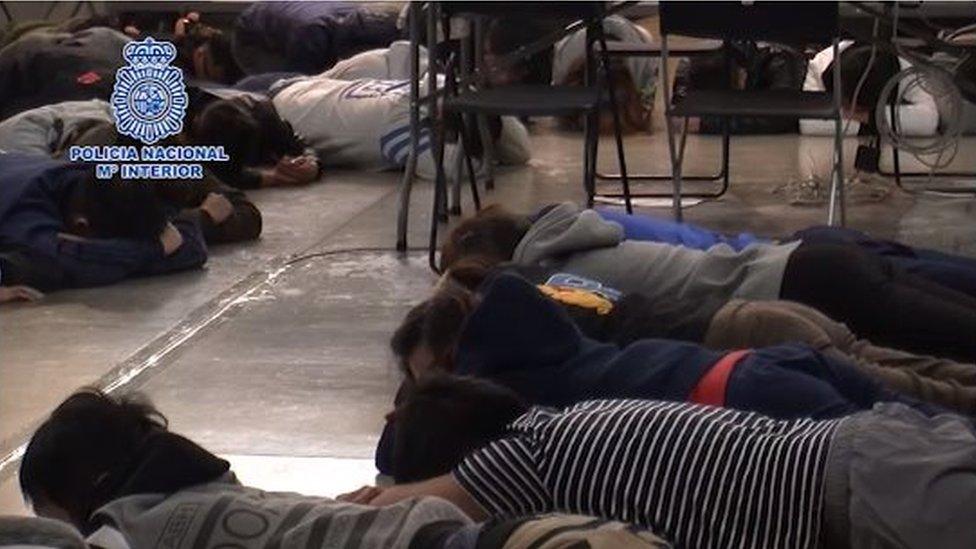
Taiwanese caught in Spain allegedly stole more than €16m from thousands of victims in China
Spain could soon become the first European Union country to extradite Taiwanese criminal suspects to China, instead of their home island.
In December, a joint Spanish-Chinese operation busted what police said was a massive international phone scamming syndicate.
Although most of the 269 suspects arrested were Taiwanese nationals, Beijing asked for the entire group to be sent to China. Last month, the Spanish government approved the request.
Taiwan, which China sees as a breakaway province that will eventually be reunited with the mainland, has protested that the decision violates historical European human rights norms and the "principle of nationality".
But the reality is that it can do little to stop the transfer. Spain, like most countries, doesn't formally recognise Taiwan as a state.
Analysts say China's stance on the issue reflects the tougher line it has taken towards Taiwan since President Tsai Ing-wen, whose party leans towards formal independence, won elections in January last year.
The mainland has also spoken of its frustration with Taiwan, accusing it of failing to rein in thousands of its nationals who dupe Chinese people via phone scams from abroad.
How did the Spain scam work?
From luxury villas in the cities of Madrid, Barcelona and Alicante, the mostly Taiwanese scammers are said to have called endless lists of telephone numbers in China.
Behind curtained windows and fuelled by energy drinks, members of the crime syndicate worked through the night, hoping to deceive victims on the other side of the world.
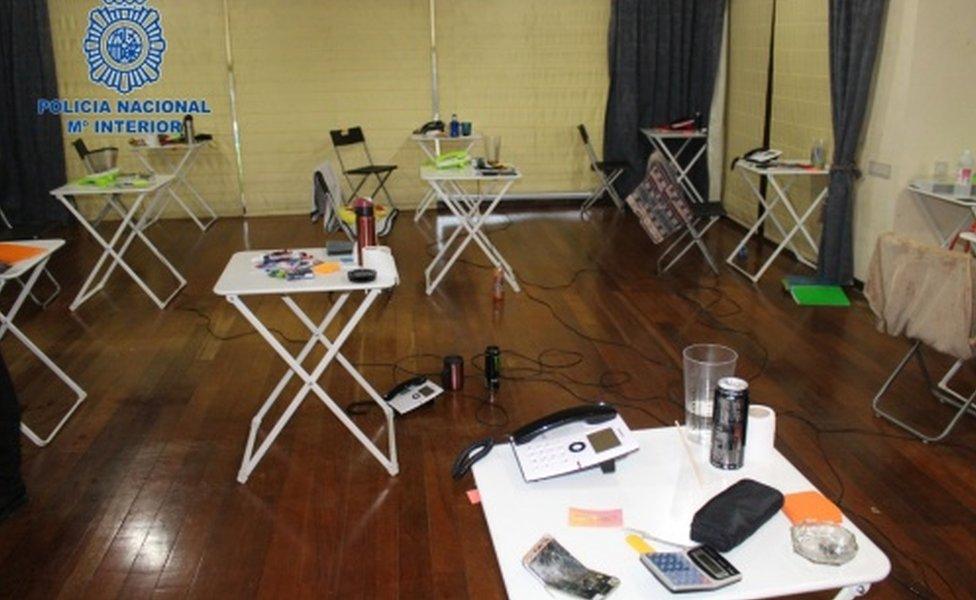
Thousands of Taiwanese are believed to be involved in telecom fraud from overseas locations
The scam, according to Spanish police, operated in three stages. First, a fraudster would call a would-be victim, presenting themselves as a neighbour or friend, and offering a seemingly well-meaning warning about a rising incidence of scams in the area.
Later, another operator would pose as a policeman, telling the person that they were a potential target for fraudsters or, in some cases, that they had already been defrauded.
Then the final ruse: Posing as a police or judicial investigator, a scammer would ask the victim to transfer money into a special bank account, so the "fraudsters" could be tracked.
Using this method, more than €16m (£13.9m; $17m) was stolen from thousands of victims in China. Seven people have committed suicide as a result, according to Chinese media.
Why does China want the suspects?
China claims jurisdiction in the case because the victims are mainland Chinese. This is what it stresses, rather than arguments about sovereignty.
"They are not necessarily making a nationality argument that the Taiwanese [suspects] are Chinese," says Ernest Caldwell, a Chinese law expert at London's School of Oriental and African Studies (SOAS). "The lynchpin of their argument is that the victims are in China."
He adds that this is a common reason for extradition in many places, and what Spain is doing is permissible under international law. But China also cites the supposedly lenient treatment given to Taiwanese phone scam suspects when they are sent back home as another reason why the judicial process needs to occur in China.
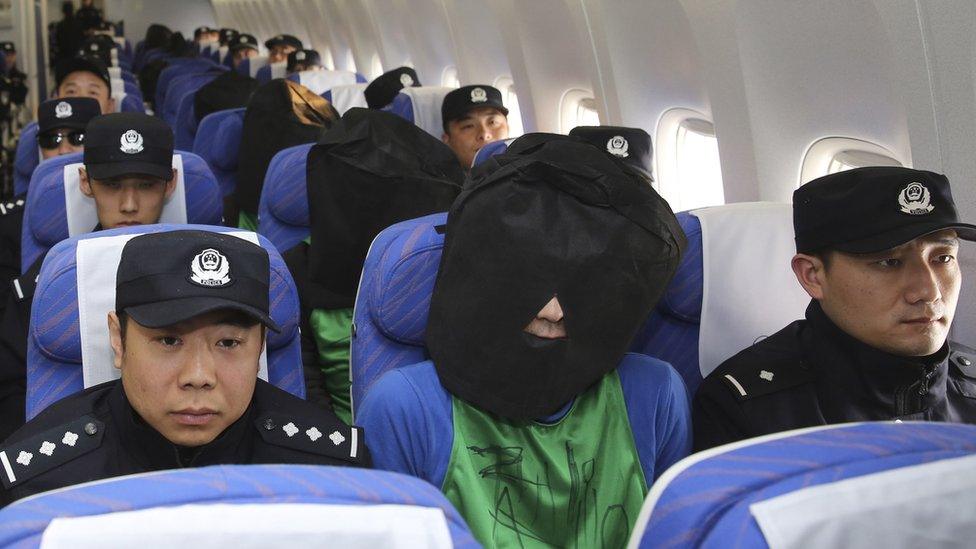
A group of Chinese and Taiwanese suspects were deported from Kenya to China in April 2016
Last year, a group of 20 alleged scammers arrested in Malaysia were returned to Taiwan, but quickly released by the authorities, who cited a lack of evidence.
Beijing reacted angrily, accusing Taiwan of hurting victims "a second time". Most of the suspects were then re-arrested, but the case allowed Taiwan to be pummelled in the Chinese press.
Why would Spain send them?
Spain signed an extradition treaty with China in 2005, becoming the first developed Western country to do so. Like most countries it follows a "one China" policy, and does not formally recognise Taiwan.
Spain's Justice Ministry, in a statement to the BBC, referred to all of the 269 suspects held as having "Chinese nationality".
What's behind the China-Taiwan divide?
Although the alleged crimes are not death penalty offences in China, there are human rights concerns. Amnesty International researcher Patrick Poon said China's conviction rate of up to 99%, questions about fair trial rights and longstanding fears about torture or ill-treatment should give Spain pause for thought.
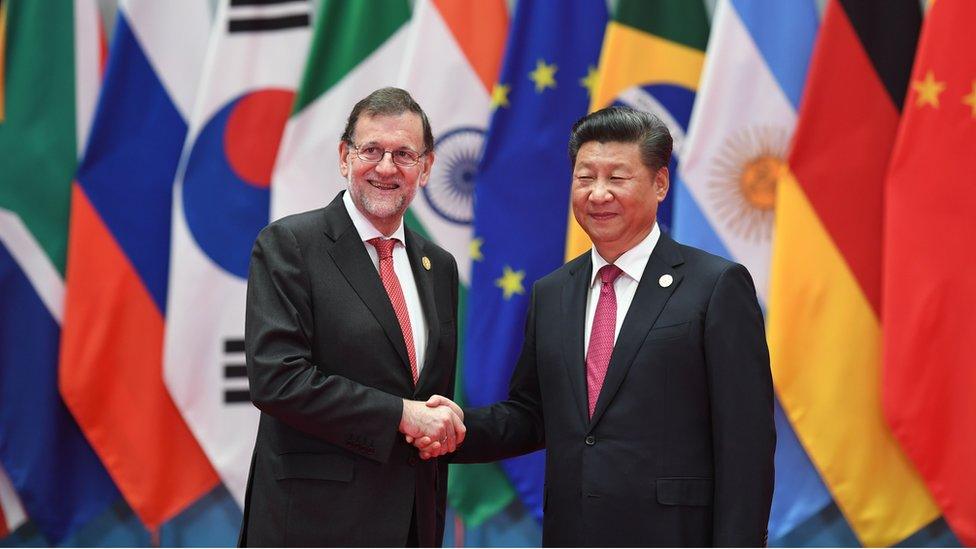
Spain was the first developed Western country to sign an extradition agreement with China
Mr Caldwell adds that Spain actually does have the option of sending the suspects back to Taiwan, given they were presumably admitted to the country on Taiwanese passports. Spain says that judicial processes are continuing, and its National Court could still decide to block the extradition.
But the approval of the extradition request "does suggest that the Spanish government is trying to put commercial interests ahead of the human rights of those deported", said Dafydd Fell, a Taiwan expert at SOAS.
What is the link to worsening Taiwan-China relations?
Before President Tsai won the election in January 2016, there was better cross-strait co-operation in tackling organised crime. In overseas fraud cases, the Chinese nationals were sent to China, and the Taiwanese to Taiwan, even if that was sometimes via China.
But Beijing scrapped this tacit agreement between the two sides last April. Police in Kenya forced 45 Taiwanese, some of whom had actually been acquitted of crimes, onto a plane to China. Taiwan called it an "illegal abduction".
Taiwan's first female leader: Shy but steely
The highly publicised episode was widely interpreted as Beijing heaping pressure on Ms Tsai to recognise, like her predecessor, that both sides are part of "one China".
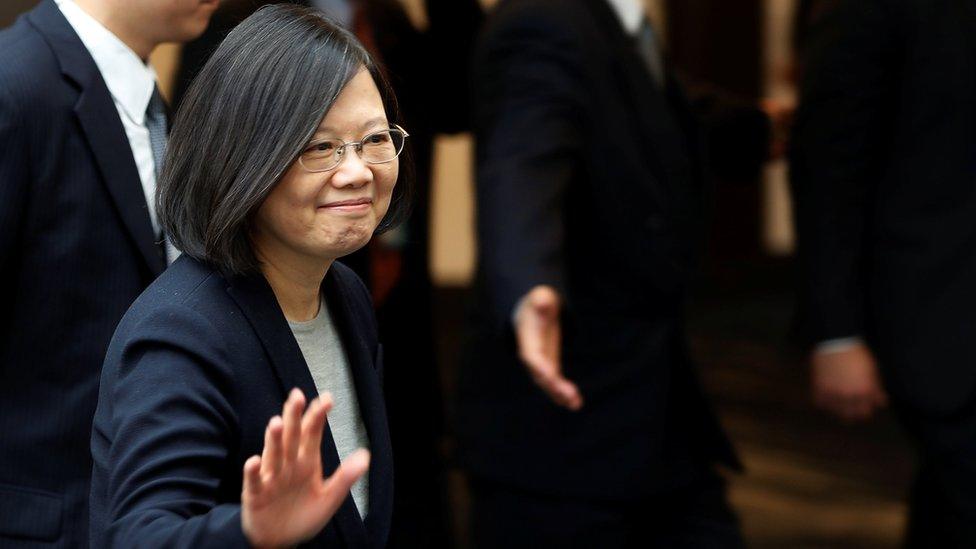
China wants Tsai Ing-wen (pictured) to accept the so-called 1992 Consensus - which is that there is one China but that both sides interpret what this means differently
China changed its policy because of "political factors", Chen Ming-tang, a deputy minister in Taiwan's ministry of justice, told the BBC.
He said that Taiwan's strategy now "is to be faster" than the mainland and get hold of Taiwanese criminal suspects abroad first before Beijing can.
"But China is now very actively trying to find them," he says. "It's not necessarily just to put pressure on Tsai, they told us these cases are on the rise in the past and a lot of mainlanders have been victimised."
Between April 2016 and 22 February this year, 223 Taiwanese phone fraud suspects had been sent to China from countries including Malaysia, Cambodia, Vietnam and Armenia, according to Taiwan's Mainland Affairs Council.
China's demand in the Spanish case is being similarly seen as a show of power, and another opportunity to embarrass Taiwan for its citizens' alleged criminal actions.
But the mass extradition of such a large group of people from a European Union country will also be seen as a new victory for Beijing over Ms Tsai.

'They tell you what you want to hear' - a victim's story
It was sometime in 2012 that Mei*, an IT professional working in Shanghai, received the first call. The man on the other end of the line had a southern Chinese accent, possibly Taiwanese. He said was from the ministry of justice.
He told Mei that someone was using her credit card "to do something bad". She hung up, not trusting the caller. The young woman then started receiving more calls, and text messages, saying that money laundering was the crime in question and that she needed to co-operate.
The callers told her that to win her trust they could send her a message from an official government number. They did and she looked it up online. It was the same, apart from one digit.
"That made me really confused," she said. "I thought that maybe they were actually the officers and they were just trying to get some information to help [with the investigation]."
They asked if she had any friends or relations who might be involved in illegal activities like money laundering. It just so happened that a previous relationship had gone sour, and financial issues were involved. If it was anyone she knew, she said, it was him.
"They told me yes, that guy is very bad."
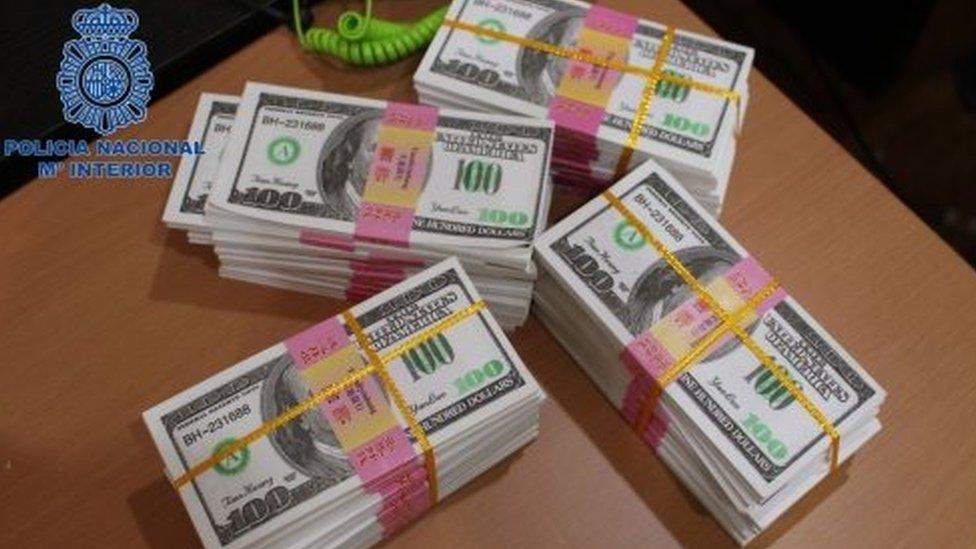
To prove she was not involved in money laundering, she was asked to transfer some money to an "official account". After a check, the money would be returned, they promised. Mei sent them 100,000 Chinese yuan (£11,700; $14,500).
It soon became apparent that she had been scammed. Mei was devastated. She told the police what had happened, but otherwise kept it to herself. She felt ashamed.
She wants justice, but says it doesn't matter where the suspects are tried.
"They need to know they are doing something wrong, and evil, and need to take responsibility. Whether it's in Taiwan or China I don't care."
*The victim's name has been changed.

Additional reporting by the BBC's Cindy Sui in Taipei and Yashan Zhao of BBC Chinese
- Published16 January 2016
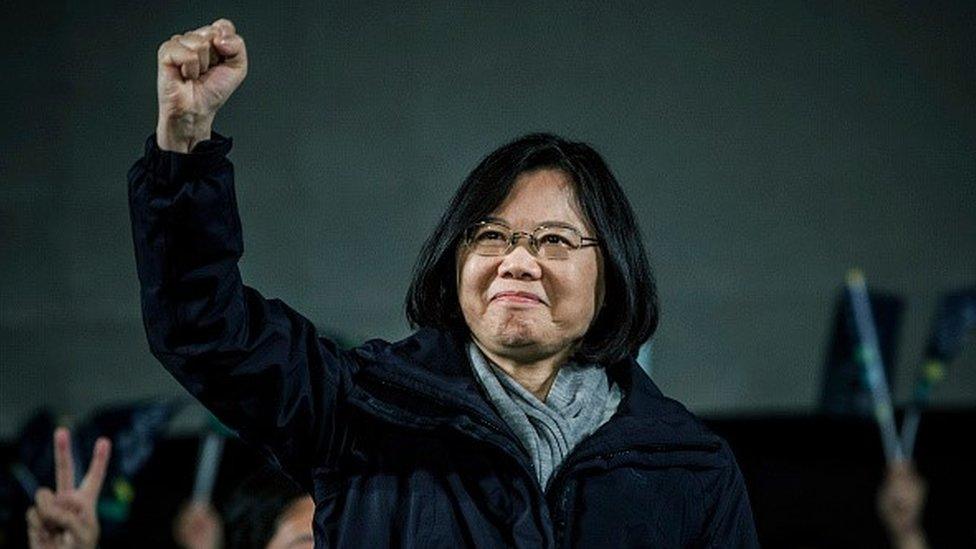
- Published8 August 2016
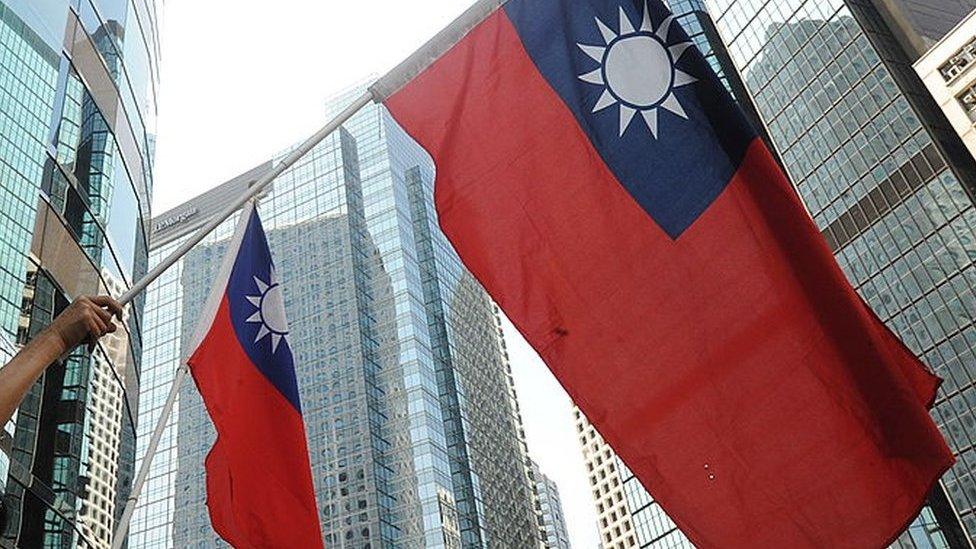
- Published22 April 2016
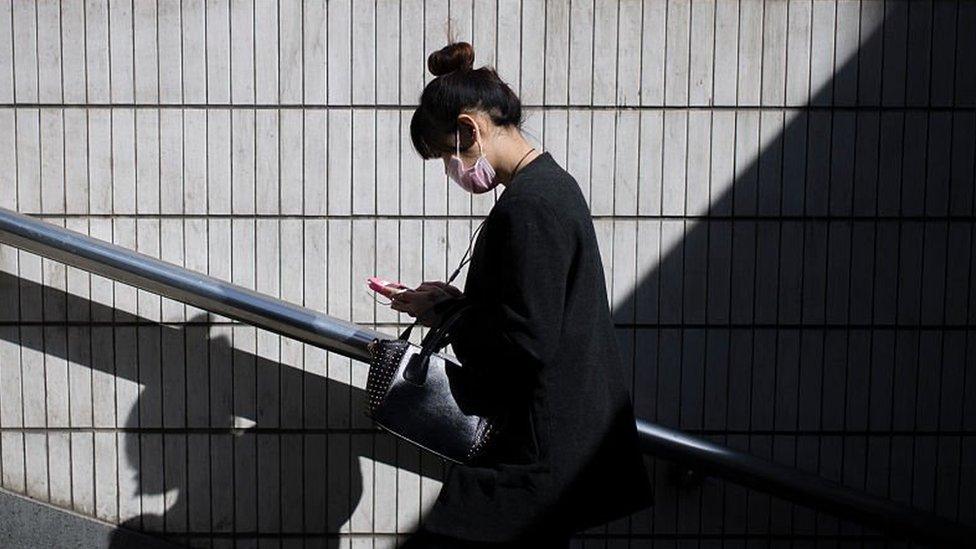
- Published14 October 2024
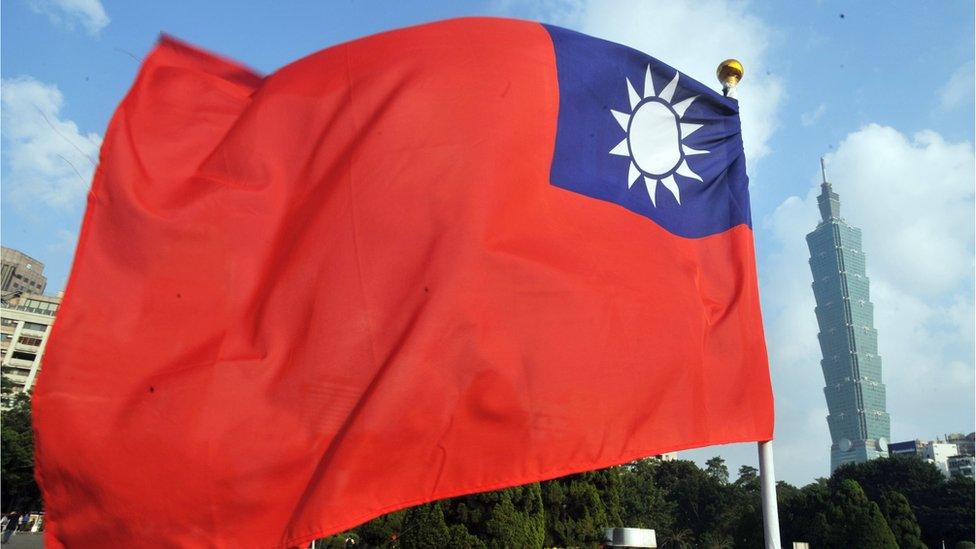
- Published13 April 2016
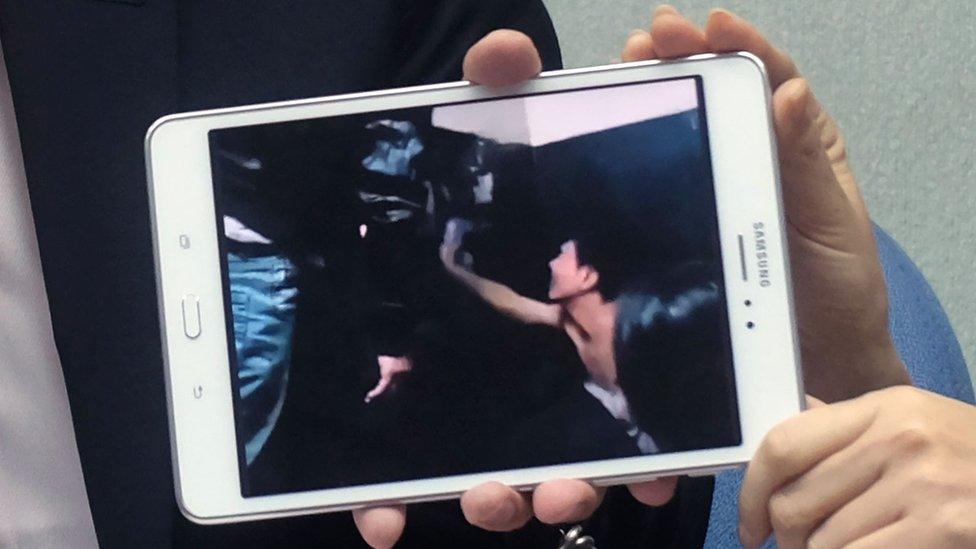
- Published11 April 2016
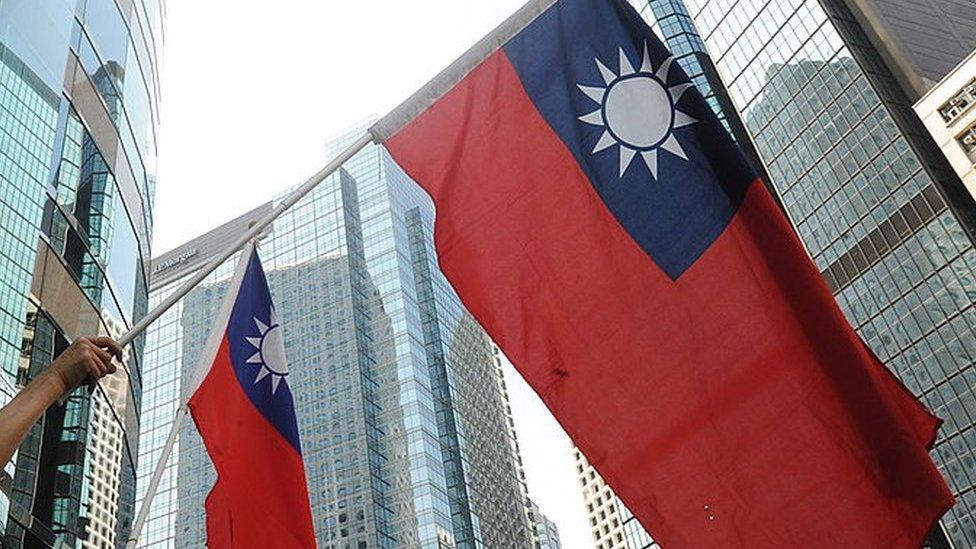
- Published17 April 2016
